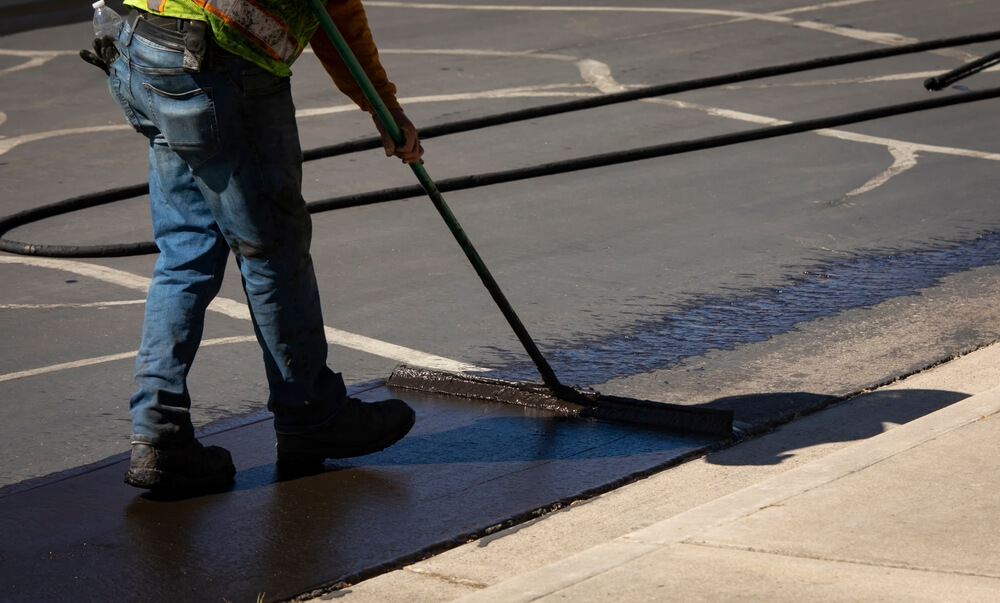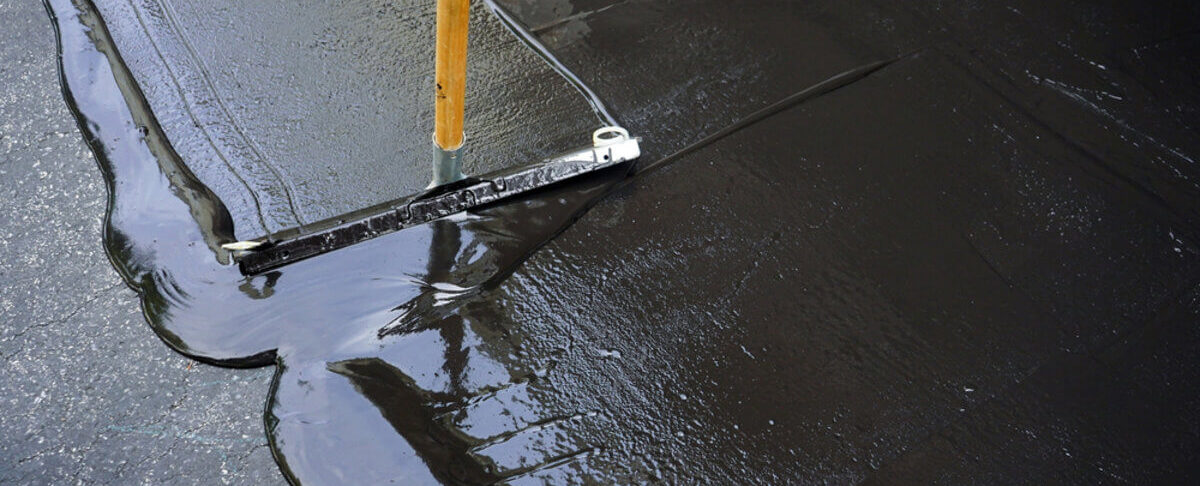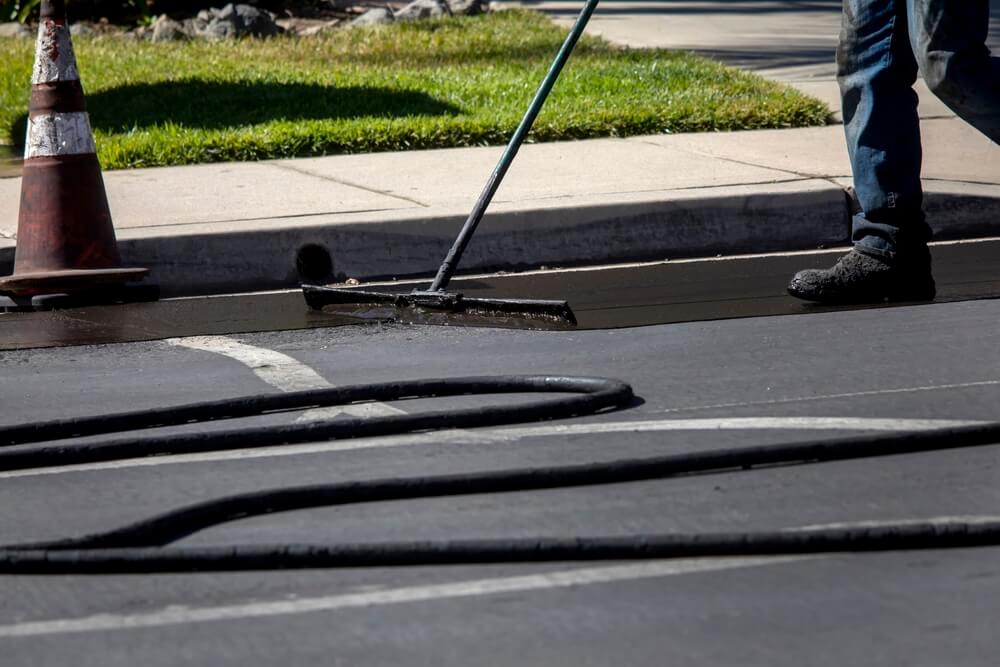As a homeowner, you understand the importance of maintaining the appearance and functionality of your property. When it comes to your driveway, asphalt is a popular choice due to its affordability and durability. However, over time, asphalt can deteriorate due to exposure to UV rays, water, oil, and other elements. This is where asphalt sealcoating comes into play. By applying a protective coating to your asphalt surface, you can extend its lifespan and enhance its overall appearance. But, as with any home improvement decision, it’s essential to weigh the pros and cons before proceeding.
Understanding Asphalt Sealcoating
Before diving into the pros and cons of asphalt sealcoating, let’s first understand what it entails. Asphalt sealcoating is the process of applying a protective coating to the surface of your asphalt driveway or parking lot. This coating acts as a barrier, shielding the asphalt from harmful elements such as UV rays, water, and oil. In addition to protection, sealcoating can also enhance the overall appearance of your asphalt, giving it a fresh, new look.
The Pros of Asphalt Sealcoating
Here are the pros of asphalt sealcoating:
Enhanced Durability
One of the primary advantages of sealcoating is its ability to extend the lifespan of your asphalt driveway. By protecting the surface from UV rays and other damaging elements, sealcoating prevents premature deterioration and helps maintain the structural integrity of your driveway or parking lot.
Prevention of Cracks and Potholes
Regular sealcoating can prevent cracks and potholes from forming on your asphalt surface. By creating a protective barrier, sealcoating minimizes water penetration, which is a leading cause of asphalt damage. With proper maintenance, you can avoid expensive repairs down the line.
Improved Aesthetics
Over time, asphalt can fade and lose its original luster. Sealcoating restores the rich, black color of freshly laid asphalt, giving your driveway or parking lot a refreshed and appealing look. This enhancement in aesthetics can significantly improve the overall curb appeal of your property.
Cost-Effective Maintenance
Investing in sealcoating is a cost-effective way to maintain your asphalt surface. Compared to the high costs of repairing or replacing damaged asphalt, sealcoating is a relatively affordable option. By regularly applying sealcoating every few years, you can significantly extend the life of your asphalt and minimize the need for major repairs.
Protection Against Oxidation and Chemicals
Asphalt is susceptible to oxidation, which can cause it to become brittle and prone to cracks. Sealcoating acts as a protective layer, blocking harmful oxidizing substances and chemicals from penetrating the asphalt. This protection helps keep your asphalt surface in optimal condition for a longer period.
The Cons of Asphalt Sealcoating
Now that you know the benefits of asphalt sealcoating, here are the cons:
Maintenance Required
While sealcoating offers significant benefits, it does require regular maintenance. The protective coating typically lasts around two to three years, after which it needs to be reapplied. Incorporating sealcoating into your maintenance budget is essential to ensure the long-term benefits of this process.
Not Suitable for Fresh Asphalt
Sealcoating should not be applied to freshly laid asphalt. It is crucial to allow the asphalt to cure and for any excess chemicals in the binder to come to the surface before applying the sealant. Generally, it is recommended to wait three to six months after the asphalt has been laid before sealcoating.
Requires Good Asphalt Condition
Sealcoating is not a solution for severely damaged or degraded asphalt. It is essential to address any existing issues, such as cracks or potholes, before applying the sealant. In some cases, asphalt overlay or repair may be necessary before sealcoating can be done effectively.
Weather and Temperature Considerations
Sealcoating requires the correct weather conditions to ensure proper curing. It should not be applied during rainy or extremely cold temperatures. The temperature should ideally be above 50 degrees Fahrenheit during the 24-hour curing period for optimal results.
Making an Informed Decision on Asphalt Sealcoating
When deciding whether to proceed with asphalt sealcoating, consider the specific needs of your driveway or parking lot. Assess the current condition of your asphalt, the level of maintenance required, and your budget for ongoing maintenance. If your asphalt is in good condition and you are willing to commit to regular maintenance, sealcoating can provide long-lasting protection and improve the overall aesthetics of your property.
Contact Professionals Before Doing Asphalt Sealcoating

In conclusion, the pros of asphalt sealcoating outweigh the cons when it comes to extending the lifespan of your asphalt surface, preventing cracks and potholes, enhancing aesthetics, and offering cost-effective maintenance. However, it is important to consider the necessary maintenance requirements and the condition of your asphalt before proceeding with sealcoating.
To ensure the best results and to address any specific concerns or questions, it is advisable to consult with a professional asphalt sealcoating contractor. They can assess your asphalt, provide expert advice, and offer tailored solutions that suit your needs.
Contact Richfield Blacktop today for all your asphalt and concrete services. Our team of experts has extensive experience in sealcoating and can guide you through the process, ensuring the longevity and beauty of your asphalt surface.





